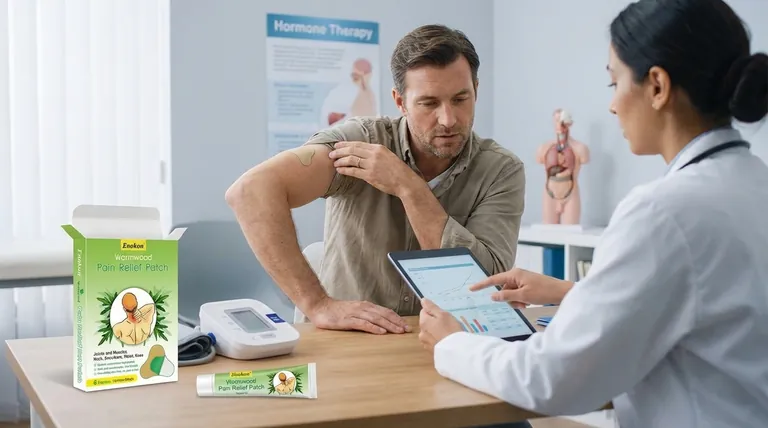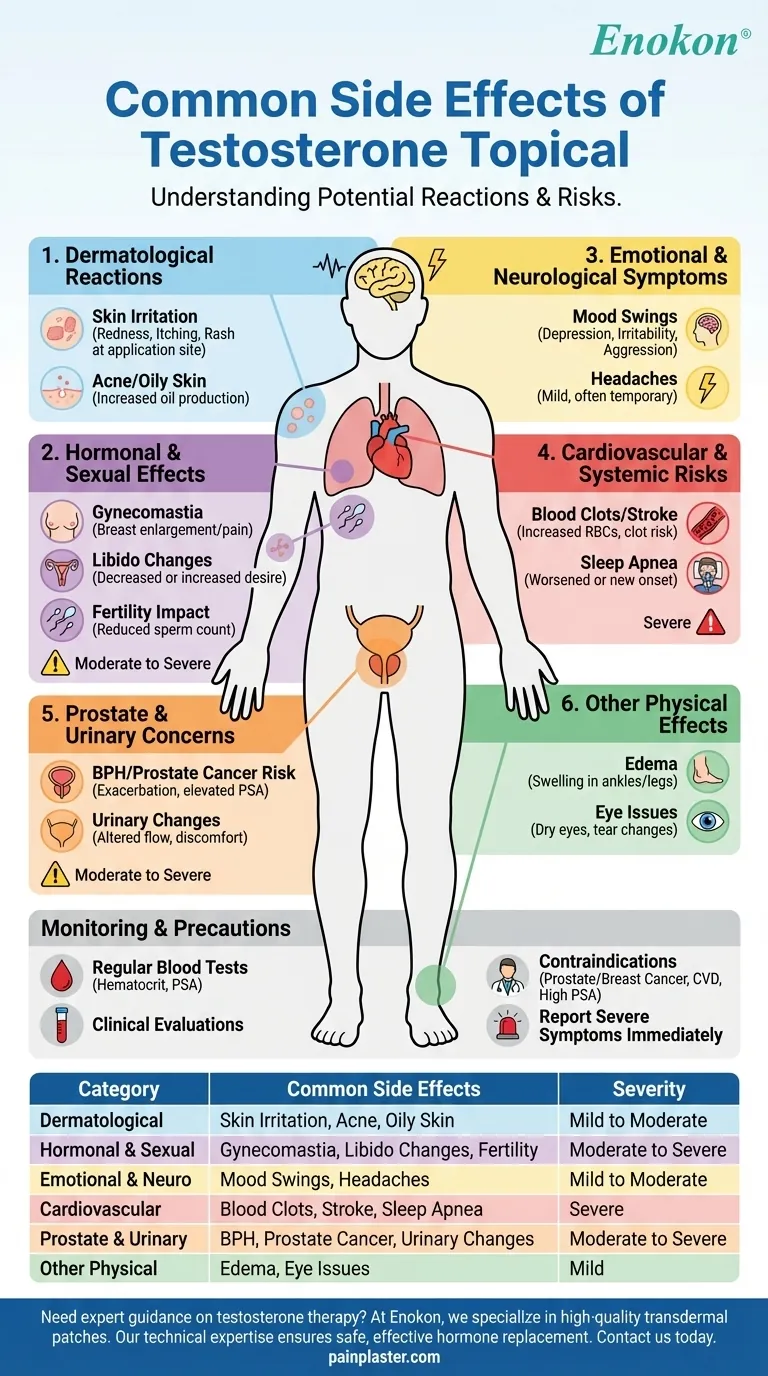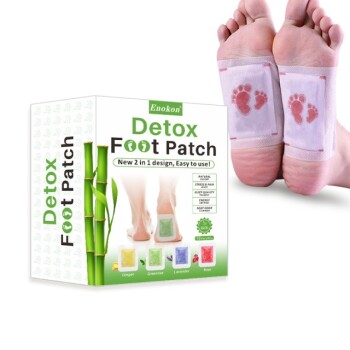Testosterone topical treatments, while effective for hormone replacement therapy, come with a range of potential side effects. These can be categorized into mild, moderate, and severe reactions, affecting physical, emotional, and dermatological health. Common issues include skin irritation at the application site, hormonal imbalances like gynecomastia (breast enlargement), and mood changes. More serious risks involve cardiovascular events, prostate complications, and fertility suppression. Regular medical supervision is crucial to mitigate these effects and adjust treatment as needed.

Key Points Explained:
1. Dermatological Reactions
- Skin Irritation: Redness, itching, dryness, or rash at the application site are frequent due to the alcohol base in gels or adhesive in patches.
- Acne/Oily Skin: Increased testosterone can overstimulate sebaceous glands, worsening acne or causing oily skin.
2. Hormonal & Sexual Effects
- Gynecomastia: Elevated estrogen conversion from testosterone may lead to breast tissue growth or pain.
- Libido Changes: Paradoxically, some users report decreased sexual desire despite testosterone supplementation.
- Fertility Impact: TRT can suppress natural testosterone production, reducing sperm count (especially at high doses).
3. Emotional & Neurological Symptoms
- Mood Swings: Depression, irritability, or aggression may occur due to hormonal fluctuations.
- Headaches: A common but mild side effect, possibly linked to hormonal adjustments.
4. Cardiovascular & Systemic Risks
- Blood Clots/Stroke: Testosterone can increase red blood cell production (erythrocytosis), raising clot risk.
- Sleep Apnea: TRT may worsen existing sleep apnea or trigger new onset.
5. Prostate & Urinary Concerns
- BPH/Prostate Cancer Risk: Testosterone can exacerbate benign prostatic hyperplasia (BPH) or elevate PSA levels, necessitating regular monitoring.
- Urinary Changes: Altered urine flow or prostate discomfort may occur.
6. Other Physical Effects
- Edema: Swelling in ankles or legs due to fluid retention.
- Eye Issues: Tear production changes or dry eyes.
Monitoring & Precautions
- Regular blood tests (e.g., hematocrit, PSA) and clinical evaluations are vital to detect adverse effects early.
- Contraindications include a history of prostate/breast cancer, cardiovascular disease, or high PSA.
Patients should report persistent or severe symptoms (e.g., chest pain, suicidal thoughts) immediately. While many side effects are manageable, individualized dosing and delivery methods (e.g., rotating application sites) can minimize risks. Always consult a healthcare provider before starting or adjusting TRT.
Summary Table:
| Category | Common Side Effects | Severity |
|---|---|---|
| Dermatological | Skin irritation, acne, oily skin | Mild to Moderate |
| Hormonal & Sexual | Gynecomastia, libido changes, fertility impact | Moderate to Severe |
| Emotional & Neurological | Mood swings, headaches | Mild to Moderate |
| Cardiovascular | Blood clots, stroke, sleep apnea | Severe |
| Prostate & Urinary | BPH, prostate cancer risk, urinary changes | Moderate to Severe |
| Other Physical Effects | Edema, eye issues | Mild |
Need expert guidance on testosterone therapy? At Enokon, we specialize in high-quality transdermal patches and pain plasters tailored for healthcare and pharmaceutical needs. Our technical expertise ensures safe, effective hormone replacement solutions with minimized side effects. Contact us today to discuss custom R&D options or bulk orders for your patients or brand.
Visual Guide

Related Products
- Mugwort Wormwood Pain Relief Patch for Neck Pain
- Heating Pain Relief Patches for Menstrual Cramps
- Capsaicin Chili Medicated Pain Relief Patches
- Far Infrared Pain Patch Relief Pain Reliever for Back
- Lidocaine Hydrogel Pain Relief Patch for Pain Relief
People Also Ask
- How long can Pain Relief Patch be worn? A Guide to the 12-Hour Rule for Safe Relief
- What are the benefits of Pain Relief Patch being licensed as a medicine? Guaranteed Efficacy & Safety
- What are the key components of a pain relief patch? Unlock the Science of Targeted Pain Relief
- Can the pain relief patch be used with oral pain relief products? Avoid Dangerous Drug Interactions
- What are the benefits of using a pain relief patch instead of oral medication? Get Targeted, Long-Lasting Relief
















